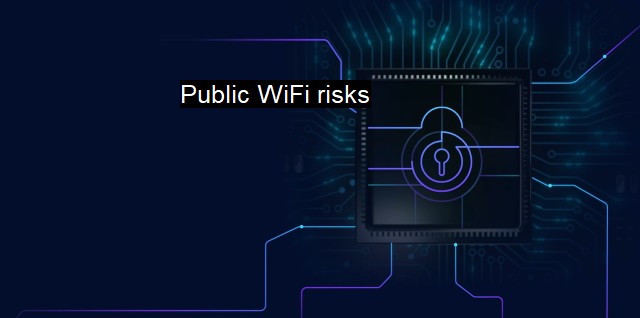What are Public WiFi risks?
The Perils of Public WiFi: A Comprehensive Guide to Protecting Your Devices from Cyber Attacks
Public WiFi refers to any WiFi connection provided publicly such as those available in restaurants, cafes, airports, hotels, and other similar places. Although these connections offer the convenience of connectivity whilst on the move, they do present significant risks, particularly in the context of cybersecurity and antivirus.Firstly, a fundamental risk stems from the basic premise of public WiFi networks: they are opened and unsecured. When individuals connect their devices to such networks, they essentially join a digital network with others utilizing the same connection. Lack of encryption can make transferred data vulnerable to interception during transmission. Any unencrypted data traveling via this network, such as passwords or financial information, could be captured and deciphered by a malicious actor operating on the same network.
Secondly, legitimate public WiFi networks can be easily mimicked. In such scenarios, a cybercriminal may set up a rogue hotspot with a similar name to a legitimate public WiFi hotspot. Unsuspecting users who connect to this rogue network expose their devices, and so their sensitive data, to the perpetrator of the attack.
Connected on that, public WiFi networks also provide ripe opportunities for man-in-the-middle (MitM) attacks. MitM attacks occur when an attacker positions themselves between two parties involved in a data transmission. The attacker intercepts the data, alters it and then send it on to the intended receiver. The receiver remains oblivious of the alteration. Therefore, the attacker ends up controlling the communication.
Yet another risk with public WiFi is that of malware distribution. Without proper antivirus protection, an infected user on the same network could potentially distribute dangerous viruses, worms, or other forms of malware to other connected devices. A simple file downloaded, link clicked, email opened, or software update initiated can become a disastrous portal to let malware wreak havoc on a device and compromise critical information.
The risk varies depending on the criticality of the information that the user is sending or receiving through the network. Deadlines, intense workload, or circumstances might oblige one to check or send an email, make a financial transaction, or fulfill other technical requirements via public WiFi. The higher the importance of data being handled on a public WiFi network, the higher the risk for the user.
Tackling these risks of public WiFi necessitates a multidimensional approach that comprises awareness, education, cybersecurity best practices, and utilization of appropriate tools and technologies. users should consider using a reliable virtual private network (VPN) to securely encrypt their online traffic, thereby obscuring it from prospective threat-actors on the same network. having robust antivirus software provides an invaluable safety layer, as it continuously monitors for signs of malicious activity, and if detected, immediately quarantines or removes the threat before it can cause significant damage.
Users should preferably use HTTPS-enabled websites, as they automatically encrypt the exchange of data, offering improved security. Also, public WiFi users should remain allow automatic connections to WiFi networks.
It's undeniable that public WiFi networks pose a myriad of risks in terms of cybersecurity and antivirus. With soaring trends in remote work and online services, the number of these public networks and their use is likely to increase. Therefore, it’s crucial for individual users and businesses alike to understand these risks and adopt balanced preventive measures. While public WiFi shouldn't be entirely avoided, users should exercise cautious and conscious behavior routed in sound cybersecurity awareness while accessing these networks.

Public WiFi risks FAQs
What are some risks associated with using public wifi?
There are several risks associated with using public wifi. One of the main risks is that your personal information and data can be intercepted by other users on the same network. Hackers can also set up fake wifi hotspots to steal your information.Can antivirus software protect me from public wifi risks?
Antivirus software can help protect you from some public wifi risks, but it can't protect you from all of them. It's still important to take other precautions, such as using a virtual private network (VPN) and only accessing secure websites.Should I avoid using public wifi altogether to stay safe?
Avoiding public wifi altogether isn't necessary, but it's important to take precautions when using it. Try to avoid accessing sensitive information, such as banking or personal login details, on public wifi networks. If you need to access sensitive information, use a VPN or a secure hotspot instead.What steps can I take to protect my cybersecurity while using public wifi?
To protect your cybersecurity while using public wifi, use a VPN, avoid accessing sensitive information, and make sure your antivirus software is up-to-date. You can also turn off automatic wifi connections and only connect to trusted networks.| | A | | | B | | | C | | | D | | | E | | | F | | | G | | | H | | | I | | | J | | | K | | | L | | | M | |
| | N | | | O | | | P | | | Q | | | R | | | S | | | T | | | U | | | V | | | W | | | X | | | Y | | | Z | |
| | 1 | | | 2 | | | 3 | | | 4 | | | 7 | | | 8 | | |||||||